The benefits of good quality sleep include keeping our mental functions working well. If we don’t get enough sleep our memory and ability to concentrate and learn is affected, as is our ability to make sensible and safe decisions or solve problems.
Some of the key benefits of sleep include restoring our immune system to prevent or fight infection. Sleep is also good for cardiac health, helping to lower blood pressure, slowing our heart rate down which allows the heart and vascular system to rest. Good quality sleep helps to regulate our appetite and maintain a healthy weight. It also helps regulate our blood sugars, reducing risk of Type 2 diabetes.
Disordered sleep
If sleep is disturbed or deprived it can have significant impact on day-to-day life, moods, behaviour and overall health. For those with an existing health issue, poor sleep can affect the ability to rest and recover and may perhaps make the condition worse. Inadequate sleep can both be caused by anxiety or depression or, cause us to experience these. It may be difficult to determine which came first, especially for people who cannot easily self-report issues that are affecting them.
If we don’t get good sleep, we can feel lethargic, struggle to get motivated, lacking energy and drive during the day. We might have difficulties with concentration and remembering what we are supposed to be doing. If we don’t have a learning disability, and are not supported in social care, we might just be seen as ‘a bit off’. For someone with a learning disability, they might well be seen as being ‘challenging.’ Instead of being given the space and support they need, extra pressure may be put on them, leading to greater irritability and possibly being prescribed psychotropic medicines as a result.
People with profound and multiple learning disabilities who are unable to self-report their difficulties are reliant on those close to them to assess and identify in a holistic and complete manner. If disrupted or disordered sleep is not even a consideration, the person’s difficulties with sleep or quality of sleep, can go unnoticed for a significant amount of time.
Sleep disorders
Insomnia – difficulty getting off to sleep or staying asleep. Even with a good sleep environment, the person struggles to sleep, causing sleepiness and difficulty concentrating during the day.
Sleep-related breathing disorders – e.g. chronic snoring, sleep apnoea. Obstructive sleep apnoea is the most common and serious sleep-related breathing disorder. It requires specialist clinical support and treatment to reduce symptoms and minimise risk.
Central disorders of hypersomnolence – excessive sleepiness, a serious problem in which the person is chronically sleep deprived including hypersomnia, where a person has a strong desire to sleep or nap during the day, or narcolepsy, a specific neurological disorder.
Circadian rhythm sleep wake disorders – e.g. jet lag, shift work disorders.
Parasomnia – a wide range of behaviours while asleep e.g. sleepwalking, night terrors, sleep paralysis.
Sleep-related movement disorders – repetitive movements that impact upon sleep quality e.g. restless leg syndrome, teeth grinding.
Other factors to consider
There may be a number of additional reasons why people with profound and multiple learning disabilities experience sleep difficulties or disorders.
Posture/Body shape – a good quality assessment with a 24 hour postural care plan, which often includes the use of sleep systems, can maximise sleep quality and quantity.
Health and neurological issues – may include respiratory conditions with aspiration risk (such as reflux) or pressure injuries. Epileptic seizures, (nocturnal or others) can impact on the person’s overall wellbeing and of course cause sleep disturbances.
Sensory impairments – e.g. a disrupted circadian rhythm, difficulty establishing night-time cues. Referrals to specialist sleep clinic may be appropriate and establishing clearly defined routines and a sleep-inducing environment are essential.
Pain/Discomfort – to preventatively/proactively seek to alleviate or minimise this, intimate knowledge of a person with profound and multiple learning disabilities is needed to identify when they may be experiencing pain, discomfort or distress.
Incontinence – Strategies should be in place to maximise comfort during sleep and minimise sleep disturbances with continence.
Impact of medicines – many medicines can adversely impact on sleep quality and quantity. Close dialogue with prescribers should consider their impact and complementary and alternative therapies.
Lifestyle – they are reliant on others to support exposure to daylight/sunlight and good physical, mental and spiritual wellbeing.
The sleep environment – essential equipment (eg enteral feed pumps), designed to support the person may create noise or vibration disturbance. Also consider temperature, light levels etc.
Reliance on family/carer support – disrupting sleep while repositioning, supporting, or simply checking while they are asleep. Consider lower lighting, soft footwear, and assistive technology for monitoring.
Disordered sleep research
Shanahan et al (2023) completed a systematic review focused on the prevalence of sleep disorders in adults with learning disabilities. They found significant variable prevalence of disordered sleep for people with learning disabilities, and challenges with measuring sleep quality and quantity. The type of sleep disorders and difficulties experienced by people within this research included difficulties falling asleep; limited amount of sleep; night waking; daytime napping and sleepiness.
The main sleep disorder featured across studies was sleep-related breathing disorders in specific syndromes. Korb et al (2021) considered ‘Sleep: the neglected life factor in adults with intellectual disabilities.’
Further research is certainly required more specifically in relation to people with profound and multiple learning disabilities. Within this, ensuring clarity of what constitutes disordered sleep within the profound and multiple learning disability population and identification of the key short/long term health impacts can help to ensure proactive strategies are put in place to enhance sleep quality and quantity and improve quality of life for people.
Detection and treatment
Sleep related breathing disorders such as sleep apnoea are often not adequately detected and treated. It is important for all clinicians involved in the support of people with profound and multiple learning disabilities to be aware of the person’s sleep and sleep quality in GP visits, Annual Health Checks and Health Action Plans.
Any concerns or doubts can then be monitored closely, referred on to sleep specialists, investigated and at the very least, a sleep hygiene plan introduced.
Understanding and assessing sleep difficulties
- Make sure sleep issues are considered within the person’s Annual Health Check (for those aged 14 years onwards) and Health Action Plan
- Health Checks should combine with regular medication reviews and should take account of any complementary or alternative therapies
- Pain, discomfort or distress
- The potential impact sensory loss may have
- The nightime routine together with detailed recording of nightime observations, including time prior to the person going to bed. Record any daytime sleepiness and naps
- The sleep environment including lighting, temperature, bedding, mattress, noise etc.
- Sleep positioning, the 24-Hour Postural Management Plan and presence or absence of sleep systems and overnight position changes
- Managing continence and comfort overnight
- Impact of respiratory diseases, and/or epilepsy
- Presence of any trauma or PTSD.
Maintaining good sleep hygiene
There are many useful tips to maintain good sleep hygiene. The Sleep Charity and Sleep Foundation have excellent tips on improving sleep quality and quantity. Maintain a sleep diary, speak to the person’s GP and seek a referral to a Sleep Clinic if you continue to be concerned and the issues are not resolving.
Ensure the person has a clear Sleep Hygiene Plan which covers all the things that are important to them, to get the best possible sleep, as consistently as possible – and aim for us all to sleep well!
References
Korb, L., O’Regan, D., Conley, J., Dillon, E.,Briggs, R., Courtenay, K., Perera, B. (2021).Sleep: the neglected life factor in adults with intellectual disabilities. BJPsych Bulletin. 2023;47 (3):139-145, doi:10.1192/bjb.2021.122 Shanahan, P., Ahmad, S., Smith, K., Palod, S.,Fife-Shaw, C. (2023). The prevalence of sleep disorders in adults with learning disabilities. Asystematic review. British Journal of Learning Disabilities, 51, 344-367
The full article first appeared in PMLD Link Journal, Summer 2024, Vol. 36 No.2 Issue 108
Back to Blogs

